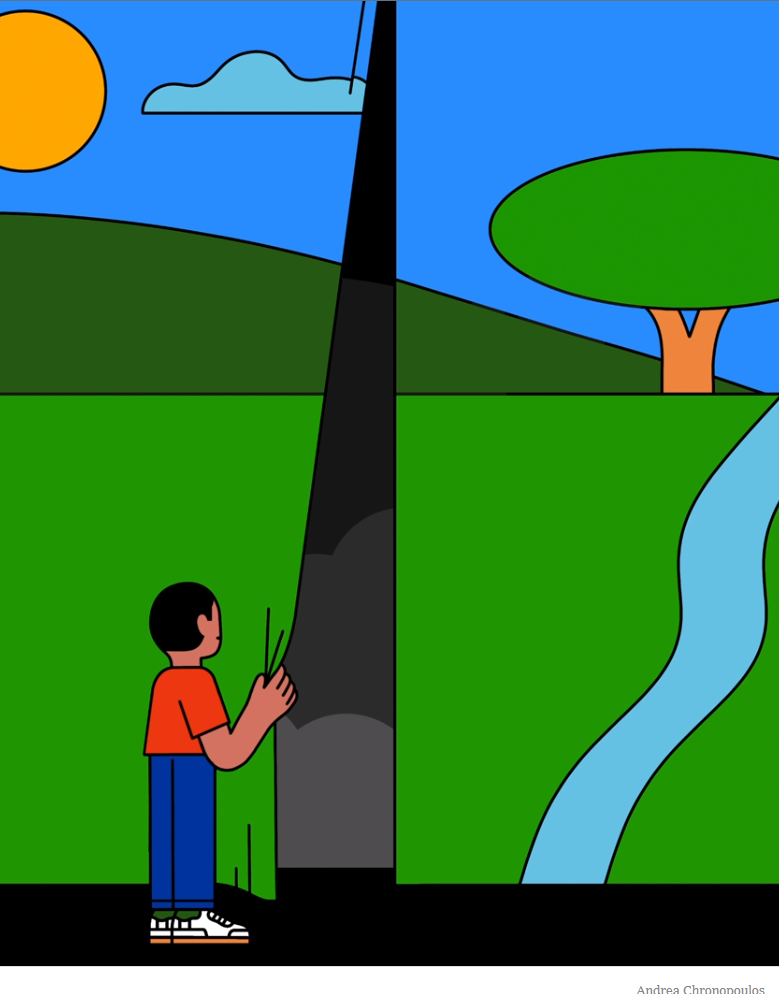News and Information at the intersection of energy, the environment and the economy.
The Official Blog of The Jia Group
We stay up-to-date with implementing the best sustainability and environmental, social and governance (ESG) strategies. You can too by seeing what we’ve learned.
Read our Books
Sold in over 25 countries, our books have guided students, executives and business leaders on how to search for opportunities in the cleantech sector.
Featured Posts
Subscribe to our Newsletter


The 'triangle of deceit' in climate conversations: ESG, net-zero and voluntary carbon markets
Amid the blizzard of corporate decarbonisation announcements, there has been some scepticism about how these ambitions will be realised, and what sort of solutions will be used to achieve them. Among the most outspoken of sceptics is Assaad Razzouk, a Singapore-based clean energy entrepreneur and host of the podcast Angry Clean Energy Guy.

Amazon begins the ‘huge’ lift to shrink the carbon footprint of its devices to reach climate goals
Amazon’s newest Echo Dot is sold in charcoal, glacier white and twilight blue. But behind the scenes, the smart speakers that deliver Alexa are newly greened.
The Seattle-based tech giant is working to shrink its carbon footprint to reach carbon neutrality by 2040, an ambitious target and one that Amazon has convinced more than 100 other companies to join through its Climate Pledge.
To fulfill its climate promise, Amazon needs to curb emissions generated in every aspect of its trillion dollar business — including the climate debt created in the production, use and disposal of its Echo Dots, Fire TV devices, Fire tablets, Kindles and other products.
Experts in the sustainability industry say it’s a significant, potentially costly initiative. And while other tech companies appear to be a few steps ahead, Amazon is in a good position to make a meaningful difference given its resources and dominance in the technology and retail sectors. The key is making sure these greener practices are widespread and permanent in their adoption, according to those both in and outside of the company.

Wisconsin Girl Scouts on a Mission to Educate an Industry
Girl Scout Troops 1477 and 1952 of the Wisconsin Badgerland Council decided they wanted to do a project to raise awareness about solutions to climate change. After looking into the biggest contributors to global warming, they were surprised to discover that embodied carbon of materials, especially concrete production, was a major factor. The Girl Scouts realized that among climate change topics, materials and concrete were less commonly discussed.
They also realized that as as Girl Scouts, they just might be able to reach a broader audience and have a material impact on a global challenge. The video they produced also turned out to be a wonderful opportunity for them to learn concepts in chemistry, engineering, architecture, planning, business, and policy, and to help them consider careers in these fields.

Climate Change Is Making Big Problems Bigger
New data compiled by the E.P.A. shows how global warming is making life harder for Americans in myriad ways that threaten their health, safety and homes.

‘Insanely cheap energy’: how solar power continues to shock the world
In the year 2000, the International Energy Agency made a prediction that would come back to haunt it: by 2020, the world would have installed a grand total of 18 gigawatts of photovoltaic solar capacity. Seven years later, the forecast would be proven spectacularly wrong when roughly 18 gigawatts of solar capacity were installed in a single year alone.
Ever since the agency was founded in 1974 to measure the world’s energy systems and anticipate changes, the yearly World Energy Outlook has been a must-read document for policymakers the world over.
Over the last two decades, however, the IEA has consistently failed to see the massive growth in renewable energy coming. Not only has the organisation underestimated the take-up of solar and wind, but it has massively overstated the demand for coal and oil.

A Swamp and 60 Feet
The eyes would be easy to miss, rising an inch or two above the brackish water like burls on a half-sunken log. And we would have, if our Floridian companions hadn’t pointed them out, because we’d been focused on a pink flamingo lawn ornament tucked in the nearby foliage. Besides the two vertical pupils, the rest of the alligator’s scaled, 6-foot-long body is hidden under a mat of vibrant green algae. It blinks and disappears beneath the surface without a ripple.
A submerged dinosaur is strange enough. But this is Florida, where 12-foot alligators wander golf courses and 9-foot snakes and finger-chomping, 200-pound turtles hide among the swampy forests. Earlier, I came across an armadillo, the only animal (besides humans) known to carry leprosy. In such a menagerie of scaly horrors, one gator is hardly noteworthy.
The strip of dirt under our tires, however, very much is: a steep, purpose-built mountain bike trail in the center of the flattest and lowest state in the Union.

Ecocide: Should Destruction of the Planet Be a Crime?
At many moments in history, humanity’s propensity for wanton destruction has demanded legal and moral restraint. One of those times, seared into modern consciousness, came at the close of World War II, when Soviet and Allied forces liberated the Nazi concentration camps at Auschwitz and Dachau. Photographs and newsreels shocked the conscience of the world. Never had so many witnessed evidence of a crime so heinous, and so without precedent, that a new word—genocide—was needed to describe it, and in short order, a new framework of international justice was erected to outlaw it.
Another crime of similar magnitude is now at large in the world. It is not as conspicuous and repugnant as a death camp, but its power of mass destruction, if left unchecked, would strike the lives of hundreds of millions of people. A movement to outlaw it, too, is gaining momentum. That crime is called ecocide.

A first for Washington, locals advise lawmakers on climate change
Imagine a group of Washingtonians representing every perspective in the state, all on a Zoom call at the same time to decide how to end carbon pollution. Even the people who don't think climate change is happening, or don't think it's human-caused, are allowed to type their ideas into the chat. What happens? Shouting, name-calling, finger pointing?

What’s Really Behind Corporate Promises on Climate Change?
Many big businesses have not set targets for reducing greenhouse gas emissions. Others have weak goals.







